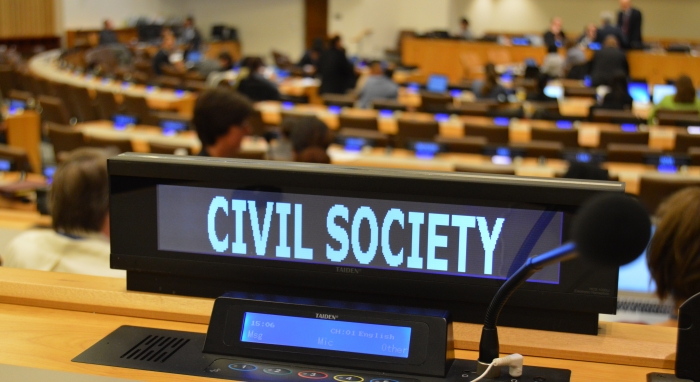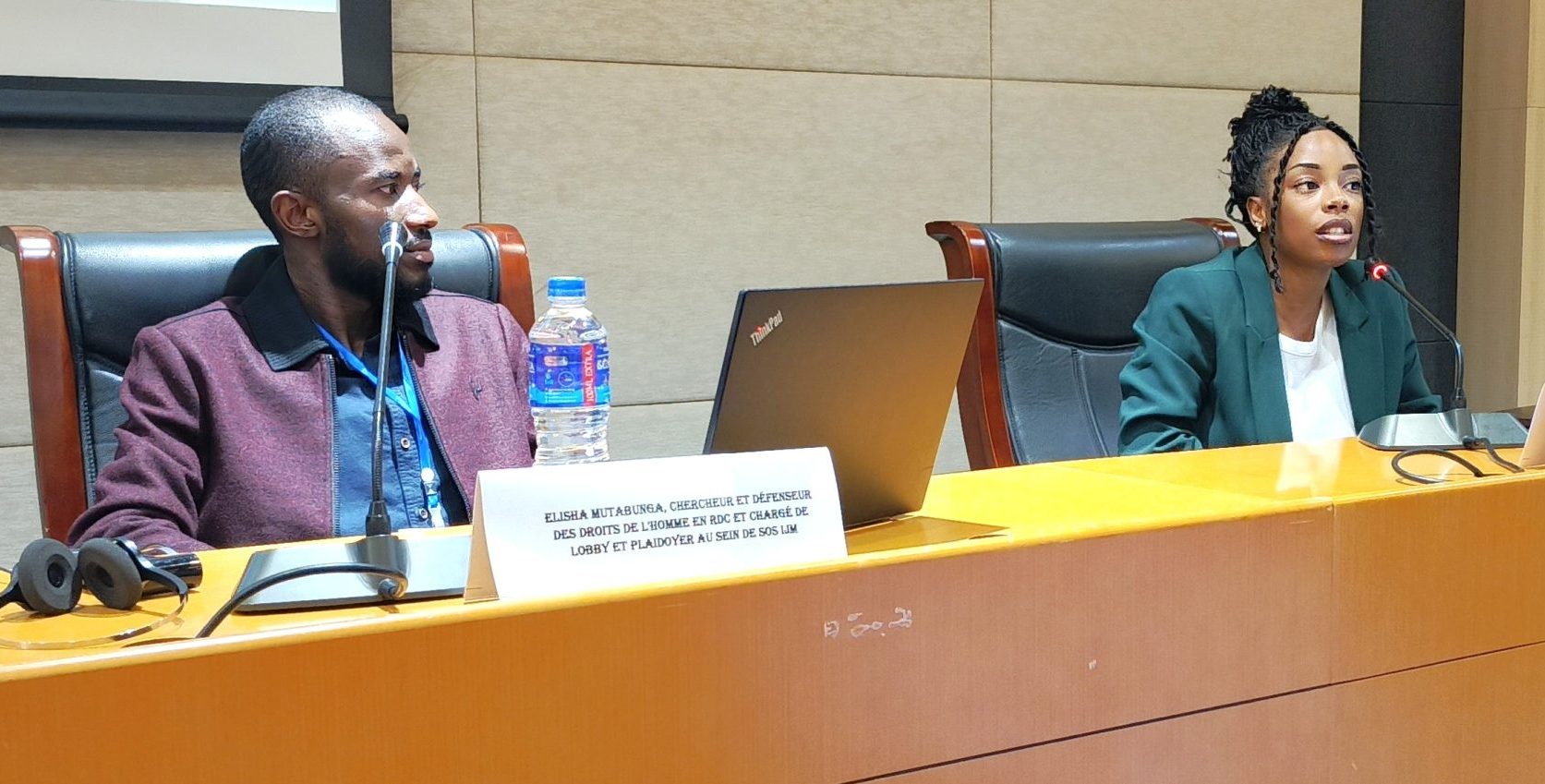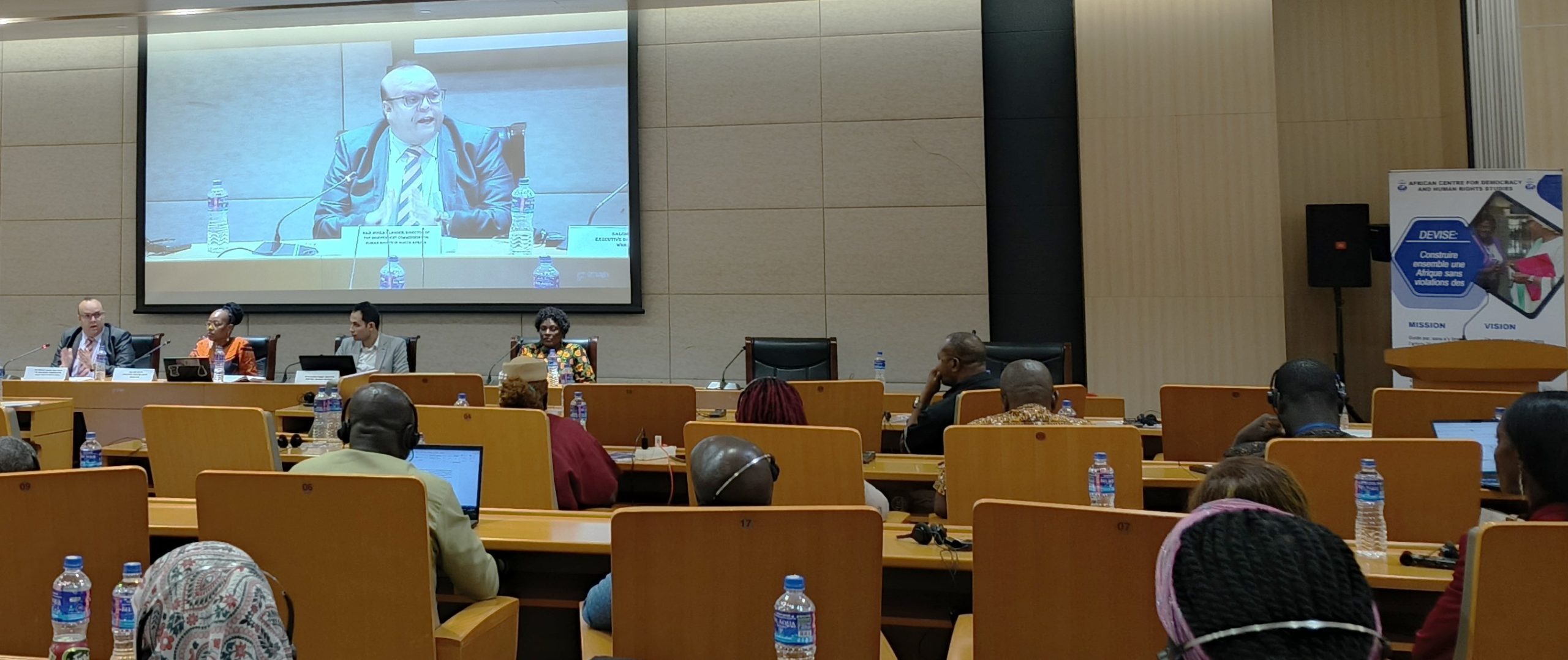The relationship between the UN and NGOs was in the spotlight on Friday, when the Committee on NGOs heard from civil society in New York, Mexico City and Geneva, as well as through video messages, on how to improve access to and participation with UN processes.
‘The Economic and Social Council (ECOSOC) defined the relationship between the UN and NGOs to be an evolving one pointing to the potential for a growing appreciation of the value of a diverse civil society engagement and of the technical advances to facilitate that engagement,’ said ISHR’s Eleanor Openshaw delivering a statement for ISHR.
The Committee – the body responsible for monitoring the relationship between the UN and NGOs – was mandated in 1996 to meet with accredited NGOs at least twice a year. It took a decision by the Economic and Social Council (ECOSOC) last year to finally force the Committee to convene the first meeting to explore that relationship.
The three hour meeting time was almost exclusively given over to civil society, who offered a raft of recommendations, including:
- The UN should explore how technological advances could facilitate engagement, particularly from those far from UN hubs.
- Reprisals against civil society representatives cooperating or seeking to cooperate with the UN – including unfounded accusations of terrorist connections – must end immediately.
‘As the High Commissioner on Human Rights recently pointed out, reprisals are counterproductive – they undermine the effectiveness of the UN,’ said Openshaw. ‘They are also unconscionable individual human rights violations’.
- The ECOSOC accreditation process, handled primarily by the Committee on NGOs, must be made easier to understand and more predictable through the development of clearer guidelines to steer its work.
The NGO Conectas Direitos Humanos delivered a statement in name of 258 NGOs – a larger number than two years ago – demanding reform of the practice and procedures of the Committee on NGOs.
- The UN must ensure it hears from more national level voices.
- Civil society should have greater access to information, orientation and drafts of texts being negotiated
‘Civil society participation makes for better outcomes. Therefore, the question is how to best harness that expertise, figuring out access and participation processes that truly facilitate engagement and protect those engaging from threats and attacks,’ Openshaw added.
The report of the meeting will be provided to ECOSOC to consider during their 3rd July session.
‘We hope that ECOSOC Members will respond positively to the recommendations made by civil society,’ Openshaw concluded. ‘In addition, we also look forward to the next exchange with the Committee to follow up on recommendations made.’




